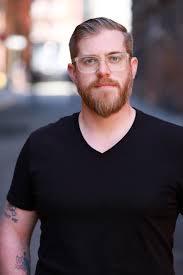Five Bits of Writing Advice That May or May Not Work For You
By Rob Hart
I want to open this with a caveat: Not all writing advice is good advice. Because it’s all subjective. Like how some people will tell you the only way to be successful is to write every day. I don’t believe that. I don’t write every day—I haven’t written something in more than a week. I’m doing okay.
At the same time, I love writing advice essays. I love to comb through them for ideas—things I can cherry-pick, or outright steal, or adapt to my own process. I’m currently at a cross-roads—finished a five-book series, moving on to a new story and a new publisher. So I’ve been thinking a lot about my writing toolbox. How it’s served me and where I’m taking it.
So I humbly offer these five bits of craft advice, for you to cherry-pick, or outright steal, or adapt to your own process. It’s stuff that’s served me well over the last few years.
Edit backwards. When you start a new book you’re full up of energy. But by the time you’ve written 50, 60, 70,000 words, you’re feeling a bit wrung out. You see “THE END” on the horizon and you are so ready to be there. So you rush. Your lush details become sparing, your dialogue becomes clipped. By the last chapter you don’t even care if the words are spelled right. I see this sometimes—in books that have been through multiple drafts and made it all the way to publication. So how do you fix it? Edit backwards. Do one full-pass edit where you start with the last chapter, and work your way toward the beginning. This way you’re putting fresh energy into the closing chapters—and you’re seeing the story from a new perspective.
Don’t be afraid to forget stuff. I’ve got this outlining trick (because I need an outline—I’m one of those). I write an outline, and then I throw it out. Then I write it again from memory a few days later. I do this a couple of times. After a few passes, I have what I need. When you’re writing from memory, you only tend to remember the really good ideas. The bad ideas, you tend to forget. And all that connective tissue, you’ve had time to mull it over, so it makes a bit more sense. Plus, by throwing it out, you make yourself a promise: nothing is set in stone, and you trust yourself as a writer to retain the important parts of the story. Every time you write a new outline, it’s stronger, because you’ve given yourself a chance to internalize it.
But also, don’t forget stuff. Just because I’m working on a book doesn’t mean I don’t have seven or eight other ideas cooking in the back of my head. Sometimes I’m working on multiple projects at once. I think it’s important to come up with a filing system. Again, you have to find what works for you. For me: Google Docs. I create a Google Doc for every project—even if it’s something I think I might not get to for years. This way if I read something that might be relevant, or have a stray thought I think might be related, it goes in the file. Eventually, I’ll get to it.
Make sure your reader gets it. One of the best pieces of nuts-and-bolts advice I got was from James Patterson (I co-wrote a Bookshot, Scott Free, with him). At one point in the story, one character charges into another and I compared it to getting hit in the gut with a cannonball. Patterson’s note was that no one knows what it feels like to get hit with a cannonball—you have to use analogies a reader will understand. It was so simple I cannot believe I didn’t realize that sooner.
Read widely. Still one of the best bits of advice I ever got was from author Craig Clevenger, who encouraged me to read as widely as I could—that a sphere of influence was good, but you could also suffocate if you stay inside it for too long. So besides trying to read as much as I can within the crime genre, I also make time to read erotica and YA and general literary fiction and a lot of non-fiction. More than that—as a white guy, I seek out authors of color, of different gender and sexual orientation, of different backgrounds and cultures. Besides making you a more well-rounded writer, I think it makes you a more well-rounded person, too.
Got a favorite bit of advice? Something unique to you that you’ve never seen before? Something that might be a big help to someone else? Sharing is caring—drop it down in the comments!
***
Rob Hart is the author of the Ash McKenna series—Potter’s Field, the fifth and final entry, is out now from Polis Books. Previous entries include New Yorked, City of Rose, South Village, and The Woman from Prague. In January, Polis will release Take-Out and Other Tales of Culinary Crime, a series of shorts that share a theme of food and noir, the title story of which will appear in Best American Mystery Stories this October. And in summer 2019, Crown at Random House will release his first standalone, The Warehouse, which has sold in 18 countries outside the United States and been optioned for film by Ron Howard.
Find more at http://www.robwhart.com.
